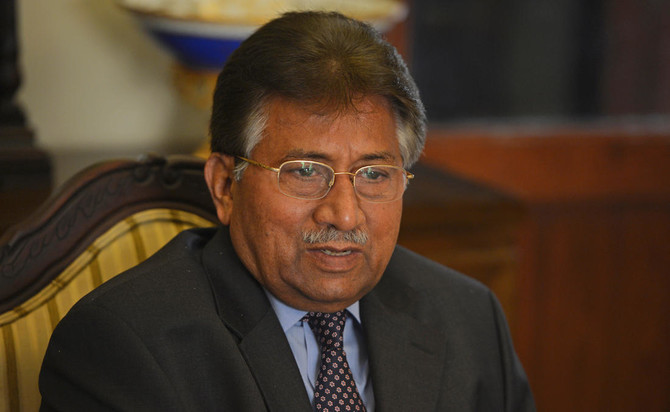Law Minister Farogh Naseem on Thursday announced the federal government’s decision to approach the Supreme Judicial Council (SJC) for the restraining — and subsequent removal — of the judge who had authored the detailed verdict in the Musharraf treason case.
The judgment has been authored by Peshawar High Court Chief Justice Waqar Ahmad Seth who has directed that the “corpse” of former president retired Gen Pervez Musharraf be “dragged to D-Chowk” and “hanged for 3 days” in paragraph 66.
“I do not understand the authority under which this sort of observation was given,” said Naseem, as he addressed a press conference in Islamabad on Thursday evening.
Referring to a past judgment by Supreme Court Justice Naseem Hasan Shah in which the “universal declaration of human rights in Islam” had been referenced as well Article 14 which speaks of the “fundamental right of the dignity of man” was invoked, the law minister said that it was ruled that public hangings are in contravention to the Constitution and Islam.
“There is no room in Article 6 of the Constitution; in the High Treason Act, 1973; in the Criminal Amendment Act of the special court, 1976; for a judge to have the authority to present such an observation,” said Naseem.
“With due respect, this is an unprecedented, despicable and completely wrong observation by the judge.”
The law minister then spoke of Article 209 under which Attorney General Anwar Mansoor Khan had earlier in the day announced his intention for a trial against the judge.
Naseem said that Article 209 comes into effect when there is misconduct due to “incompetence” or when there is “questionable mental capacity”.
“In Justice Iftikhar Chaudhry’s time ‘incompetence’ was added to the SJC rules as grounds for misconduct,” said the minister.
“Keeping in view Justice Waqar Ahmed Seth’s observations, the federal government has decided to approach the Supreme Judicial Council and file a request stating that such a judge has no authority to be a judge of a high court or the Supreme Court of Pakistan. He is unfit.
“When such observations are given, not only is the court’s privilege hurt, it becomes a test for the administration of justice.
“Our request is, because he has proven himself to be mentally unfit and incompetent, he must immediately be prevented from working. We request the Supreme Court judges to restrain him from any administrative or judicial work,” said the law minister.
Naseem said that any judge giving such observations is not only acting against the law but is proving himself to be counterproductive to the confidence that one must have in the judiciary.
“Very soon we will move a reference against the judge in the Supreme Judicial Council under Article 209,” he concluded by saying.
The controversial paragraph has been widely criticised by the lawyers community as well as members of civil society.
AG had said that the verdict was “unconstitutional, unethical, inhuman, and was given by an individual whose sanity is questionable”.
Maj Gen Asif Ghafoor, the director general of Inter-Services Public Relations (ISPR), in a briefing held shortly before the government’s, said that after today’s detailed judgment, reservations expressed by the army earlier “are proving to be true”.
At the time the short order had been issued, the ISPR had said: “The due legal process seems to have been ignored including the constitution of a special court, denial of the fundamental right of self defence, undertaking individual specific proceedings and concluding the case in haste.”
The ISPR chief said the verdict issued today — especially the words used in the written order — “transgresses humanity, religion, culture and any other values”.






























